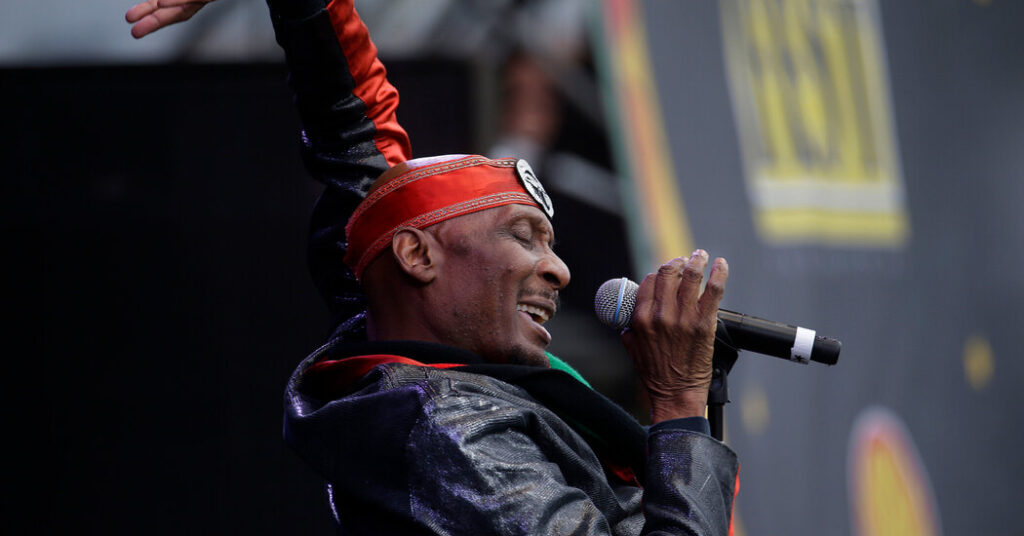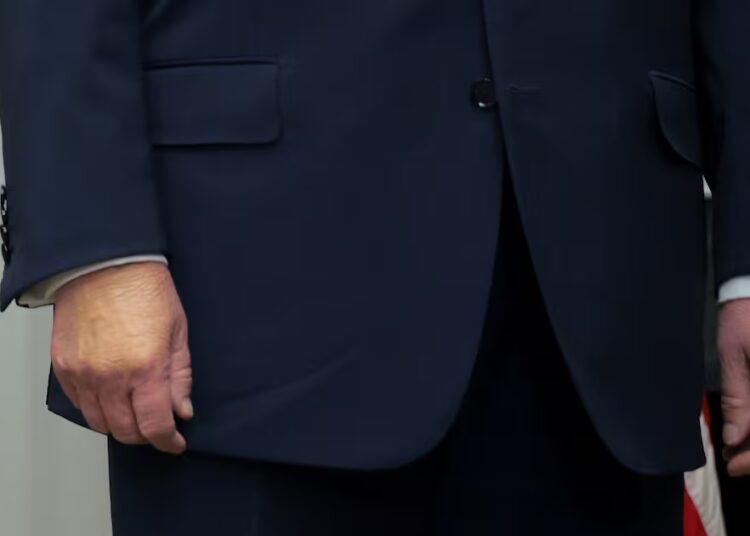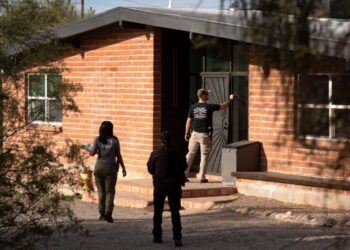Much like the main character he played the 1972 film “The Harder They Come,” Jimmy Cliff was born in the countryside of Jamaica and came to the big city as a young man with a stirring voice. And like the film itself, Cliff became an international symbol of Jamaica and its music.
Cliff, whose wife announced on Monday that he had died at 81, is one of the icons of reggae music, thanks in large part to “The Harder They Come.” The film and its soundtrack — which, in addition to Cliff, featured Desmond Dekker and Toots and the Maytals, among others — introduced much of the world to the sound and look of reggae. It also prepared the global audience for the artist who would ultimately dominate the genre: Bob Marley.
Equally successful as a songwriter and a performer, Cliff — who was born James Chambers — was a key figure throughout the modern history of Jamaican music. His first hits, at the start of the 1960s, were in an upbeat new style that borrowed from American R&B: ska. By the end of the 1960s, Cliff was one of the musicians who helped transform that into reggae, with songs of protest, struggle and uplift.
Here is a sampling of his greatest work.
‘Hurricane Hatty’ (1962)
With a stage name given to him by the Jamaican music producer Leslie Kong, Cliff scored his first local hit in 1962 by borrowing from the news: Hurricane Hattie had been a major storm in the Caribbean in fall 1961. “I’ll be like Hurricane Hattie,” he sings over an easygoing groove of guitars, harmonica and sax.
 Listen on Spotify, Apple Music or YouTube
Listen on Spotify, Apple Music or YouTube
‘Miss Jamaica’ (1962)
Another delicious chestnut of early ska, in which Cliff — always attuned to the dramatic power of diction — exclaims: “You’re my Miss Jah-may-cah,” like he’s calling out the contest winner. Cliff, along with Marley, credited Fats Domino as a crucial influence, and you can hear it in this song’s luxurious, carefree bounce.
 Listen on Spotify, Apple Music or YouTube
Listen on Spotify, Apple Music or YouTube
‘Vietnam’ (1969)
Originally released in 1969, this track entered the international protest repertoire the following year with its classic roots-reggae beat — a perpetual-motion organ riff grounded by a deep, earthy horn — and Cliff telling a stark tale of two dispatches from the battlefield. First a soldier sends a message to his girlfriend back home, then his mother gets a telegram: “Mistress Brown,” it says, “your son is dead.”
 Listen on Spotify, Apple Music or YouTube
Listen on Spotify, Apple Music or YouTube
‘Many Rivers to Cross’ (1969)
With a soaring, exhortatory voice — and a backup choir to match — Cliff sounds like a gospel or soul star here, wrestling with how to overcome pride, sin and thoughts of “committing dreadful crime.” That combination may be part of why the director Perry Henzell offered Cliff the lead role in “The Harder They Come” after he heard this song.
 Listen on Spotify, Apple Music or YouTube
Listen on Spotify, Apple Music or YouTube
‘You Can Get It if You Really Want’ (1972)
Cliff wrote this song for Desmond Dekker, a fellow giant of ska and early reggae, who recorded it in 1970. But “You Can Get It” became a sensation two years later when Cliff remade it for the film “The Harder They Come.” With a cheerful trumpet theme and lines like “You must try, try and try / You’ll succeed a last,” it does double duty as a soundtrack of all-purpose encouragement and as narration for the not-always-wholesome story of “The Harder They Come.”
 Listen on Spotify, Apple Music or YouTube
Listen on Spotify, Apple Music or YouTube
‘The Harder They Come’ (1972)
The international breakthrough moment for both Cliff as an artist and reggae as a genre, “The Harder They Come” tells a story of crime, music, fame and the limited avenues for survival in a culture of poverty. Cliff wrote and performs the title track, where he lays out the brutal costs of the life he chooses: “I’d rather be a free man in my grave / Than living as a puppet or a slave.”
 Listen on Spotify, Apple Music or YouTube
Listen on Spotify, Apple Music or YouTube
‘Trapped’ (1972)
What could be a standard story of a man stuck in a bad relationship is elevated by Cliff in this funk-leaning track into a high moral drama about how “evil concentrated must be disintegrated.” Bruce Springsteen picked up on that and made “Trapped” a highlight of his live show in the 1980s, with one impassioned version included on USA for Africa’s 1985 album “We Are the World.”
 Listen on Spotify, Apple Music or YouTube
Listen on Spotify, Apple Music or YouTube
‘I Can See Clearly Now’ (1993)
Overshadowed by Marley, Cliff never returned to the heights of fame that he had enjoyed with “The Harder They Come.” But one of the bigger moments of his later career came with this cover of Johnny Nash’s inspiring 1972 classic, which became the theme song of the 1993 comedy film “Cool Runnings,” about a Jamaican Olympic bobsled team. With hints of a hip-hop beat, Cliff took his version to No. 18 on the Billboard Hot 100, his highest position on the American pop charts.
 Listen on Spotify, Apple Music or YouTube
Listen on Spotify, Apple Music or YouTube
Ben Sisario, a reporter covering music and the music industry, has been writing for The Times for more than 20 years.
The post Jimmy Cliff: 8 Essential Songs appeared first on New York Times.




